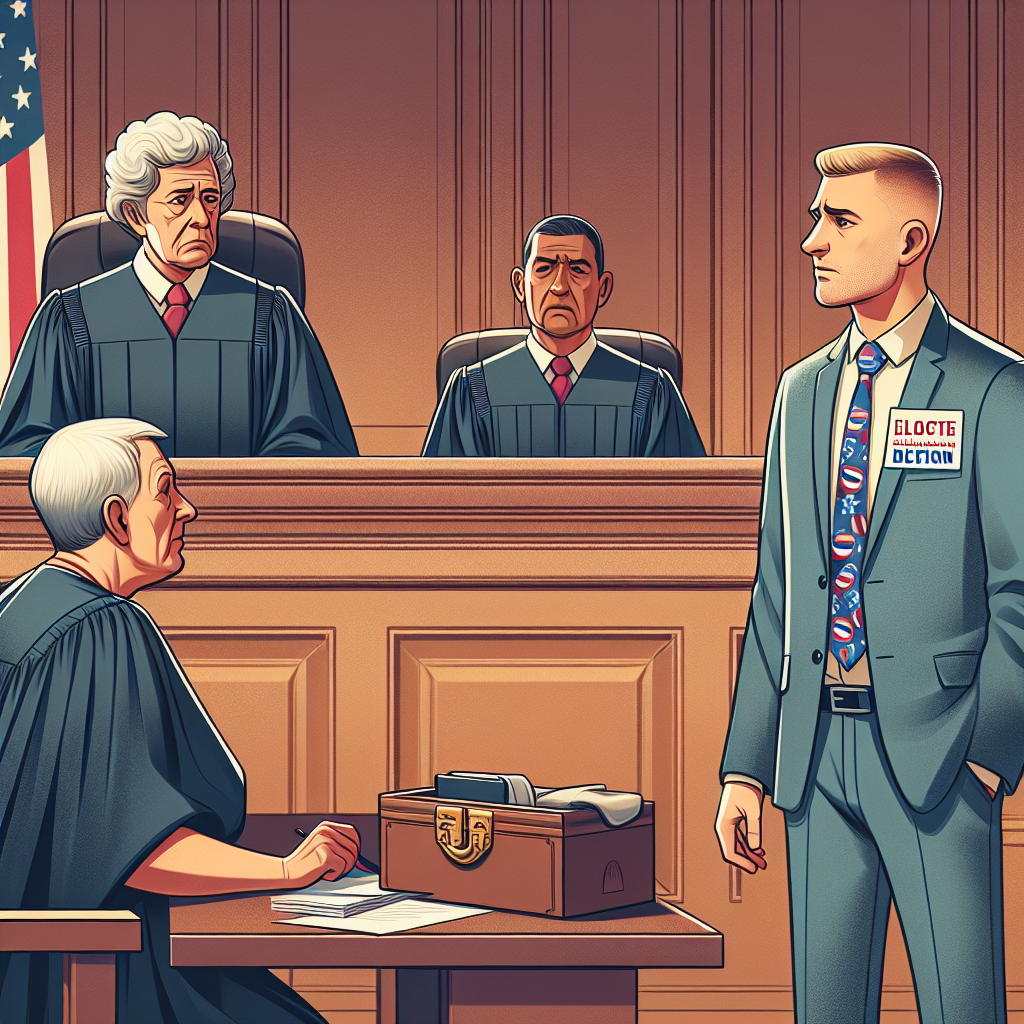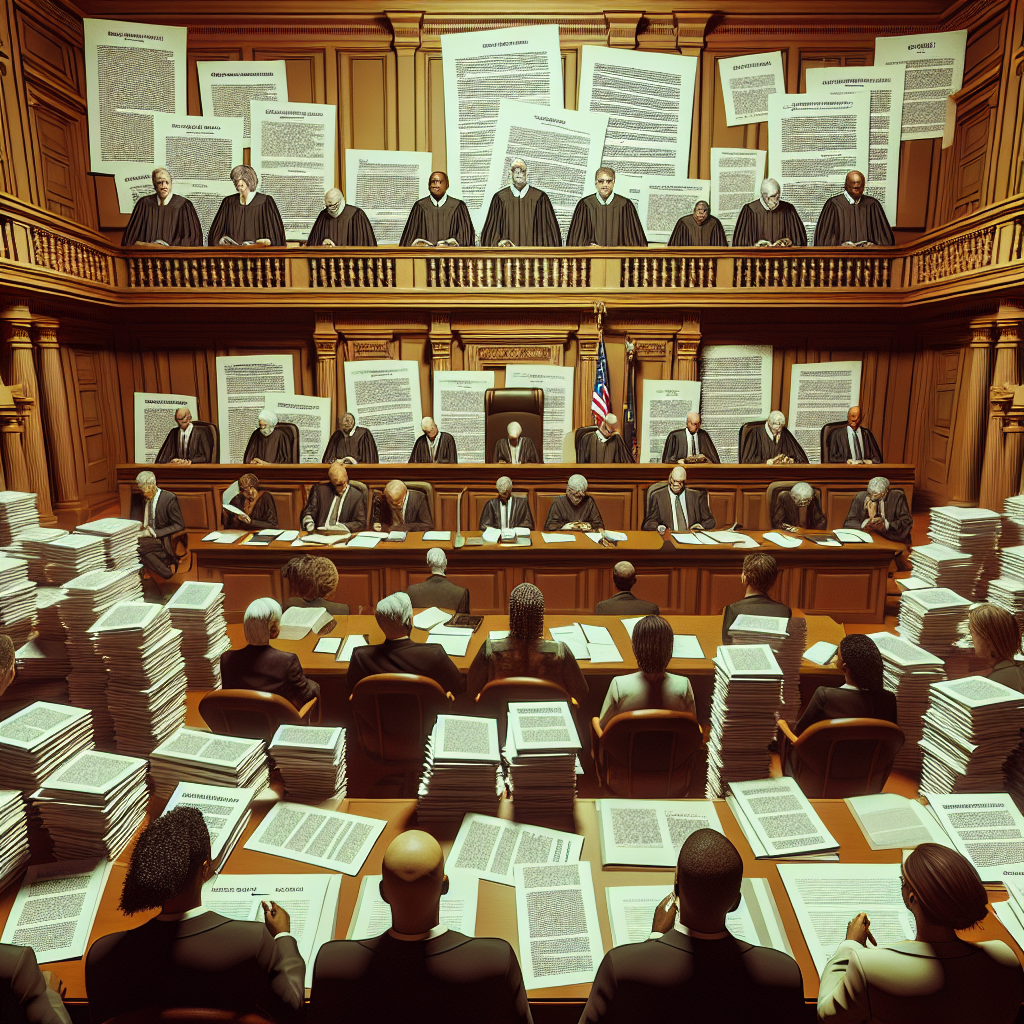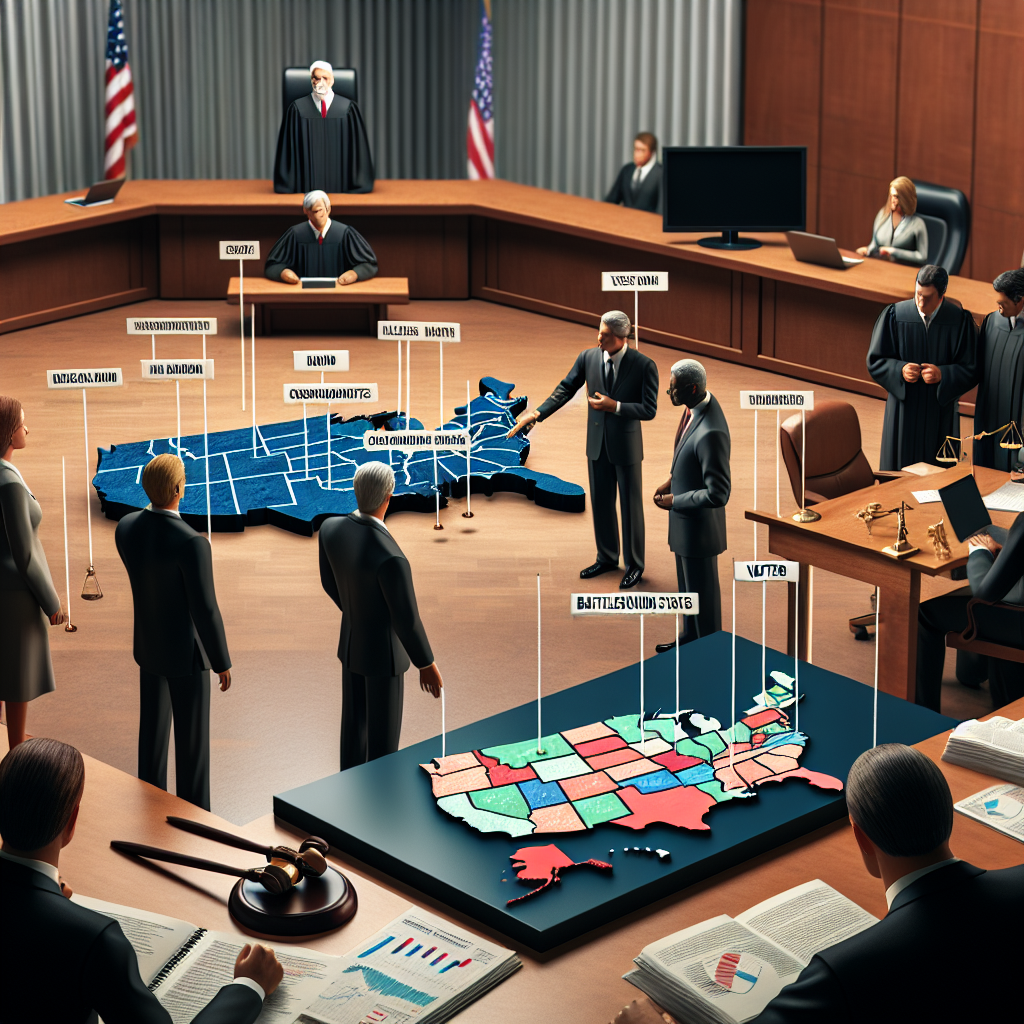The legal landscape surrounding former President Donald Trump’s election-related cases remains dynamic and complex. As various proceedings unfold, they have implications not just for Trump but for the political climate in the United States. This article aims to provide a comprehensive overview of the latest developments in Trump’s election case, focusing on key legal proceedings, recent court rulings, the analysis of evidence, and the public and political reactions that shape this ongoing narrative.
Key Legal Proceedings Shaping Trump’s Election Case Landscape
The former President is currently involved in several legal proceedings related to the 2020 election, with significant cases in jurisdictions such as Georgia and Washington D.C. In Georgia, Trump faces charges related to alleged efforts to overturn the election results, including solicitation of election officials. This case is particularly notable as it also involves several co-defendants, including high-profile figures in Trump’s inner circle. The outcome of this case could set a precedent for how similar cases are handled across the country, impacting future elections.
In Washington D.C., Trump is embroiled in a federal case concerning allegations of conspiracy to defraud the United States and obstructing an official proceeding. The charges stem from the events leading up to and including the January 6 Capitol riots. As these cases progress, they are likely to intersect with ongoing investigations into Trump’s business practices and potential violations of campaign finance laws. Legal experts suggest that the convergence of these cases could complicate Trump’s legal strategy and impact his political future.
Additionally, a New York civil case is examining Trump’s business dealings and the potential inflation of asset values. While not directly tied to the election, the outcomes of these legal battles can influence public perception and voter sentiment in 2024. The multifaceted nature of these cases encapsulates the broader struggle over accountability and integrity in American politics, inviting scrutiny from various stakeholders across the political spectrum.
Recent Court Rulings and Their Implications for Trump
In recent weeks, several court rulings have emerged that could significantly affect Trump’s legal standing. A federal judge in Washington D.C. denied Trump’s bid to dismiss charges related to his involvement in the January 6 insurrection, affirming that the evidence presented was sufficient to proceed to trial. This ruling underscores the courts’ willingness to examine the evidence closely, setting a robust foundation for the prosecution. Legal analysts have noted that this decision could embolden prosecutors to pursue similar cases against individuals involved in the January 6 events.
The Georgia state court has also made headlines by denying a motion from Trump’s legal team to delay the proceedings. This ruling effectively sets a timeline for the trial, which is expected to draw significant media attention. The court’s decision reflects a commitment to uphold judicial processes and may serve as a warning to other defendants who attempt to prolong legal battles. As legal deadlines approach, Trump’s defense team may face mounting pressure to adapt their strategies in light of the accelerated timeline.
Moreover, the rulings from the New York case involving allegations of business fraud have the potential to influence Trump’s public image. The judge’s recent decision to allow the civil case to advance means that Trump will be required to defend his business practices in court. As these legal battles unfold, they continue to raise questions about the former President’s eligibility for future political office and how these developments will resonate with voters.
Analysis of Evidence and Testimonies Presented So Far
As the cases against Trump progress, evidence and testimonies have begun to paint a complex picture of events leading up to and following the 2020 election. In the Georgia case, prosecutors have presented phone calls and text messages that allegedly demonstrate Trump’s attempts to influence state officials. This evidence is central to the prosecution’s argument, as it highlights direct interactions that may constitute criminal intent. Legal experts argue that the strength of this evidence will be crucial in determining the case’s outcome.
In the January 6 case, testimonies from various officials who were present during the Capitol riots have been pivotal. Witness accounts detailing Trump’s actions and statements before and during the riots are being scrutinized. For instance, testimonies about the timeline of Trump’s communications with rally organizers and his subsequent inaction during the violence could play a critical role in the prosecution’s narrative. The weight of these testimonies may not only affect the legal proceedings but also contribute to public opinion regarding Trump’s accountability.
Furthermore, evidence concerning Trump’s business dealings is also under examination in parallel with the electoral cases. The New York case has revealed documents that allegedly show discrepancies in asset valuations. The implications of this evidence extend beyond legal consequences; they could erode Trump’s claims of business acumen and financial success, potentially swaying public perception as he campaigns for re-election in 2024. The synthesis of these legal battles and the evidence presented will likely have lasting implications on Trump’s political trajectory.
Public and Political Reactions to the Ongoing Case Developments
Public reaction to Trump’s ongoing legal battles is deeply polarized, reflecting broader divisions within American society. Supporters of Trump view the cases as politically motivated attacks aimed at undermining his campaign for the 2024 election. This sentiment is fueled by Trump’s own rhetoric, in which he has labeled the investigations as "witch hunts." As a result, many of his supporters remain steadfast in their loyalty, seeing the legal challenges as further evidence of a biased political landscape.
Conversely, critics of Trump argue that these cases are necessary to uphold the rule of law and ensure accountability for actions that could threaten democracy. High-profile commentators and political figures have voiced their support for the legal proceedings, emphasizing the importance of upholding democratic values in the face of alleged misconduct. This divide highlights the potential for these legal challenges to influence voter turnout and sentiment in the upcoming elections, potentially galvanizing both supporters and opponents of Trump.
The political landscape surrounding these legal issues is also evolving, with some Republican figures distancing themselves from Trump, while others continue to rally around him. The impact of these cases on the Republican primaries remains uncertain, but they could lead to shifts in candidate support as debates intensify over the implications of Trump’s legal troubles. As the trials progress, the interplay between legal, public, and political reactions will shape the narrative leading up to the 2024 election.
The ongoing legal challenges faced by former President Trump are more than just courtroom skirmishes; they represent a pivotal moment in American politics, one that could define the future of electoral integrity and accountability. As key legal proceedings unfold, recent court rulings reveal the judiciary’s stance toward allegations against Trump, while the analysis of evidence continues to evolve. Public and political reactions to these developments will undoubtedly influence the upcoming election cycle. The implications of these cases extend beyond Trump’s personal future, touching on the core principles of democracy that are at stake in the current political climate. As 2024 approaches, the intersection of law, politics, and public sentiment will be critical to watch.



